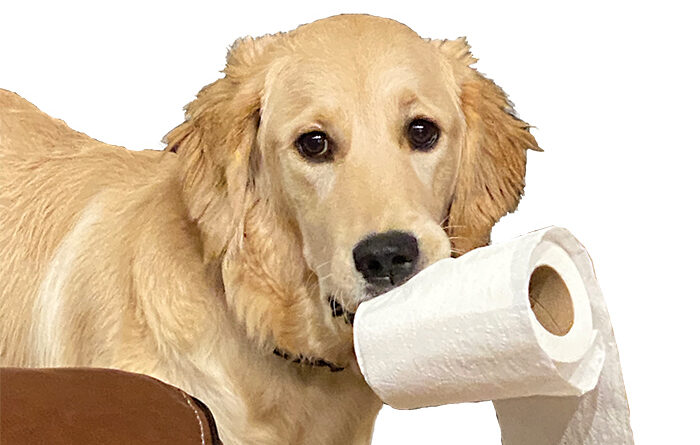5 Tips for Training Your Puppy
Puppies are cute, but they’re also a lot of work!
Here are some of my top tips to help you raise the best puppy possible for a calmer, content adult dog.
Tip #1: Puppies get bored fast!
Puppies need exercise, mental stimulation, and training to help prevent them from finding something to do on their own – such as chewing your undergarments! (More on that in a bit.)
Be sure to give them plenty of toys, chews, and games in addition to playing with them so they can learn to be content on their own and not always rely on their human family for entertainment. How can you tell if your puppy is bored? They are busy wandering about the house looking for interesting corners and objects to explore. Attach them to your waist with a leash and take them with you wherever you are for as long as you can. This will allow you to keep an eye on your puppy at all times and intervene as soon as they go looking for trouble.
Tip #2: Whining doesn’t always mean they NEED something
Puppies often whine when they need to go outside to do their business, but they also will whine to try to get something they want. A prime example of this is whining to get out of the crate; before you know it, your cute little bundle of fur has taught you to let them out of the crate so they can get into trouble and taught you to believe that they “don’t like” their crate. How to tell when your puppy really needs something, and when they’re just trying to test your patience: listen to the intensity and the insistence behind the whine, and pay attention to what happens after. A puppy that needs to go out to pee will sound very different than a puppy who just wants to nap on your lap.
Tip #3: Every dog is different
Every dog is different, and they each have their own little ways of letting you know what they need and want. Daphne, my 5-month-old Doberman puppy will often pounce into my lap or into my leg when she needs to go out, and will often just whine/groan/grumble when she doesn’t want to sleep in her crate. She’s usually asleep before she finishes grumbling, though, so I ignore it. Dante, my two-and-a-half-year-old Doberman, will stand behind me and whine/groan with his head down when he has to go out. I thought it was hilarious until he started looking for a place to go inside shortly after!
Tip #4: House training isn’t actually a training issue
House training is a common problem for many new puppy owners, but it doesn’t have to be. All “accidents” inside are human error, not your puppy’s. Young puppies have tiny plumbing and cannot “hold it” for very long. A good rule of thumb is to take the number of months your puppy has been alive and add one. If you have an 8-week-old puppy, you can expect the maximum amount of time they can go between to be 3 hours. However, that is only for when they are asleep in their crate! When out, and under supervision, you can expect to take your puppy out each time they eat, play, drink, go for a walk, and wake up from a nap.
Tip #5: Puppies. Chew. Everything.
Finally, puppies are busy exploring their new world, and that means they are constantly putting things in their mouths. Chewing helps relieve anxiety, is fun, and helps when they’re teething, so have a wide variety of different styles of toys and chews lying around for your puppy to find. Even better, hide them in different places where you hang out so they can “discover” something new rather than chew the furniture or nip at your feet. Stock up on their favourites when they have gravitated to something in particular. Now, why do they seem to enjoy the embarrassing activity of chewing your underwear?? The simple reason is that it’s the one article of clothing that will be completely saturated with your scent. They love to be near you, and they love chewing – it’s a doubly enjoyable task as far as they’re concerned! As long as you keep it out of reach, and don’t make a huge deal out of it if they do find a stray garment, they will grow out of it, I promise!
Follow the tips above and you will be well on your way to having a well-adjusted adult in a couple of years.
Thank you so much for reading, I thoroughly enjoy writing these articles for you! Be sure to tell me what you think on social media by following me on Facebook and Instagram
@turnerandpoochtraining. My website is ptbodogtrainer.ca and my email is ineke@ptbodogtrainer.ca. Happy Training!




